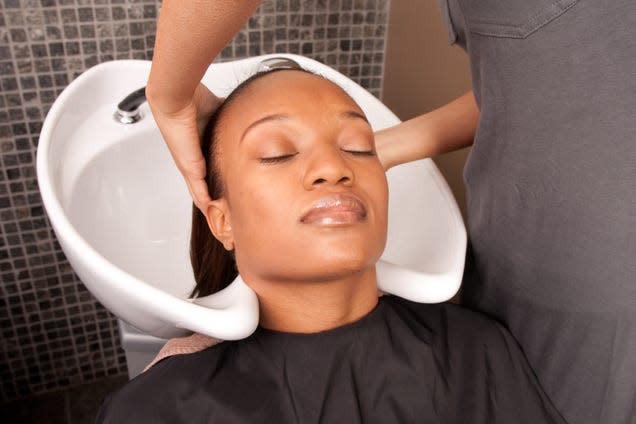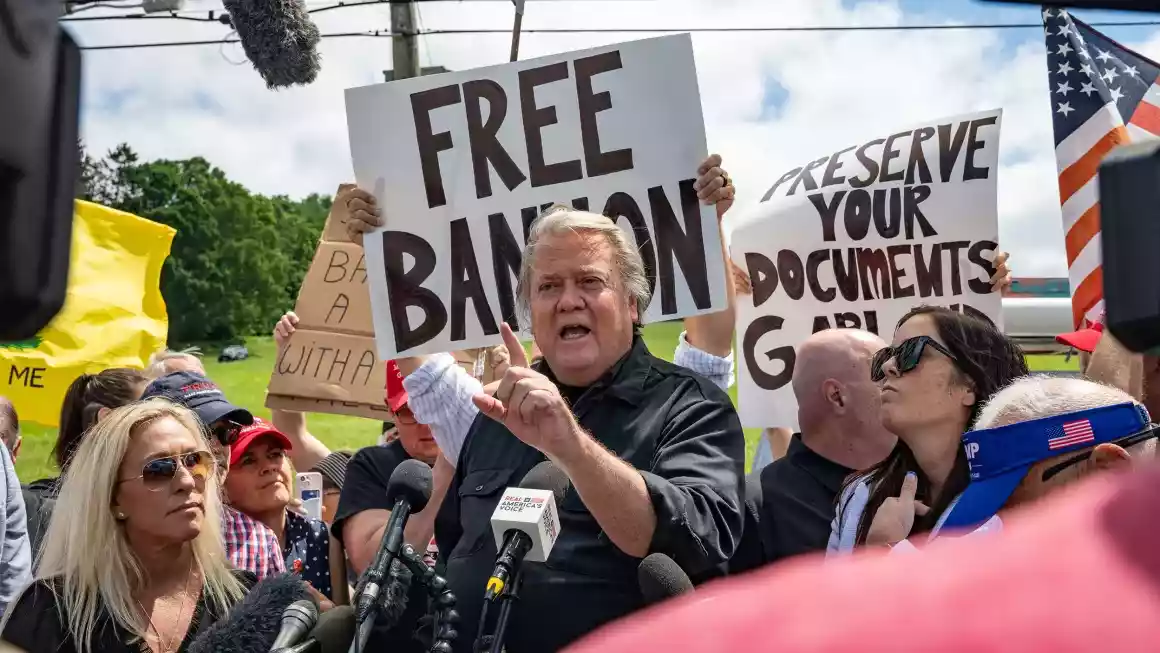
Women using chemical hair-straightening products are at a higher risk of uterine cancer than women who reported not using them, a new study by the National Institutes of Health found. Researchers noted that Black women may have a higher risk because they are more likely to use such products more frequently.
A group of researchers with the NIH’s National Institute of Environmental Health Sciences looked at the hair care habits of more than 33,000 women and found that those who used chemical hair straightening products at least four times a year were more than twice as likely to develop uterine cancer.
Researchers said chemicals like parabens, phthalates and fragrances in hair care products disrupt the endocrine system, which helps regulate hormones. That could, in turn, raise the risk of uterine cancer, the most common cancer of the female reproductive system.
“Sixty percent of the participants who reported using straighteners were Black women. The bottom line is that the exposure burden appears to be higher among Black women,” said Chandra Jackson, a participant in the National Institute of Environmental Health Sciences Earl Stadtman Investigators program, who co-authored the study.
The study’s lead author, Alexandra White, the head of the agency's Environment and Cancer Epidemiology group, said: “We see a doubling of risk for frequent users, and that’s a very alarming figure. For non-users, the absolute risk is about 1.64%, and then when you look at frequent users, the risk goes up to 4.05%. It’s a notable increase in risk.”
There have been at least 65,000 new cases of uterine cancer in the U.S. this year, about 3% of all new cancer cases, according to the study.
Pressure to adhere to societal beauty standards that glorify and prioritize hair textures and styles associated with white people have led some Black people to rely on harmful hair care products like chemical relaxers to look the part, said Wendy Greene, a law professor at Drexel Kline School of Law who studies Black hair discrimination. She calls the pressure the “straight hair mandate,” noting that it can affect Black people’s work, social and educational lives. Hair care products targeted toward Black women seeking to fit such beauty standards are often full of endocrine-disrupting and asthma-associated chemicals, many of which aren’t listed on product labels, according to a 2018 study published in the journal Environmental Research.
“By virtue of conforming, we often use toxic chemicals to straighten our hair or use extreme heat styling to maintain straightened hair,” Greene said, adding that the pressure to do so stems from negative associations with Black people’s hair and the “privileging of straight hair styles because of their association with whiteness.”
“Oftentimes this leads to temporary or permanent hair loss, chemical burns to our scalps, in addition to the possibilities that we’re going to have to engage in financial, emotional, as well as temporal investments to try to repair the harm. If you care about Black women’s health, you have to care about our hair.”
Conversations about Black hair have made headlines in recent years, especially as more Black women have decided to forgo chemical straightening products in what has been called a natural hair movement. But the apparent cultural shift has come with societal and even economic consequences, as Black people have had to fight workplace and school discrimination over their natural hair.
In recent years, it has been reported that Black children have been reprimanded for wearing their hair in braids, dreadlocks or other protective styles. For example, in 2018, a Black varsity high school wrestler in New Jersey was told to cut off his dreadlocks or forfeit a match.
The House voted this year to pass the CROWN Act, which stands for Creating a Respectful and Open World for Natural Hair. It would prohibit “discrimination based on an individual’s texture or style of hair.” The Senate hasn't voted on the bill; more than a dozen states have passed laws to ban racial discrimination against natural hair since 2019.
Advocates like Greene, one of the leading voices in the movement against Black hair discrimination, have highlighted that wearing natural hair isn’t easy or always safe for Black people.
“Black women have been subject to intense scrutiny and harassment in workplaces when they’ve decided to go natural, like being subject to workplace discrimination, the loss of employment opportunities, the loss of promotional opportunities and the accompanying compensations,” Greene said.
“There can be economic consequences to even trying to challenge this discrimination,” she said. “These are things people try to diminish about natural hair discrimination. We really aren’t thinking about all the consequences, implications and harms that result from this kind of discrimination.”
Black hair became a topic of discussion again this month when former child models featured on perm box kits began sharing their hair care journeys as adults. It started with a tweet from Ashley León, who captioned an image of several perm box kits featuring children with relaxed hair, asking: “where are these girls today? show yourselves.” The models, now women, responded by sharing photos of themselves.
In interviews with The Washington Post, several of the women spoke fondly of their time as perm kit models but revealed they ended up wearing natural hairstyles as adults.
“I love the fact that almost all of them are natural,” Tanee Newby, 29, who appeared on one of the kits as a child, told The Post. “That’s the progression of Black hair. We started with perming. … Now, the girls on the perm boxes still look like me, because here I am, natural.”







